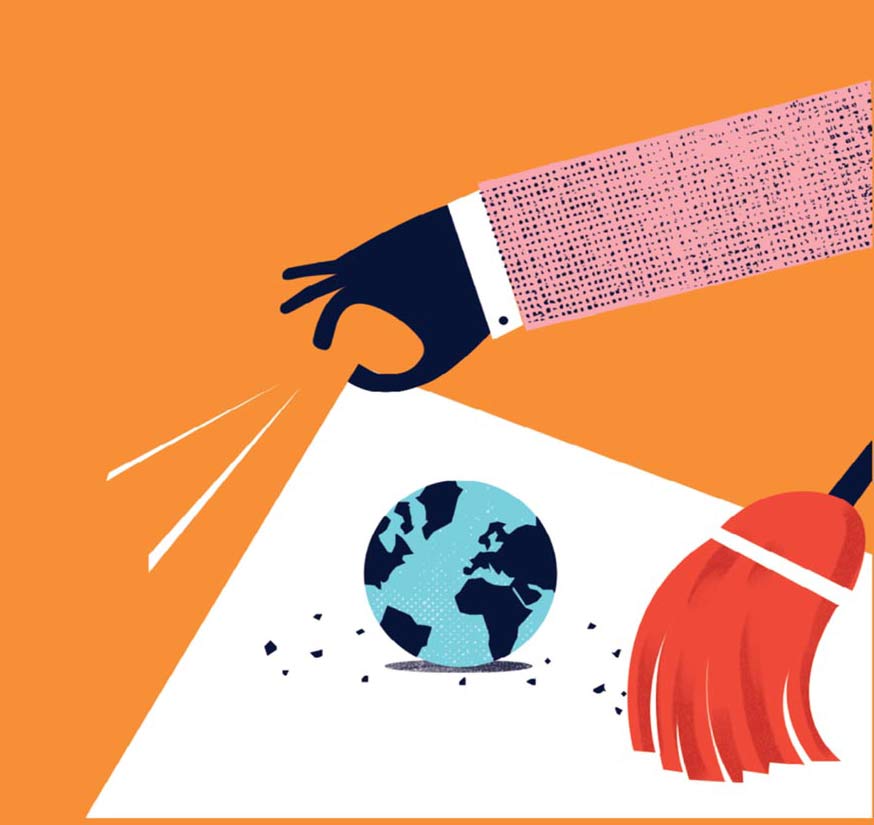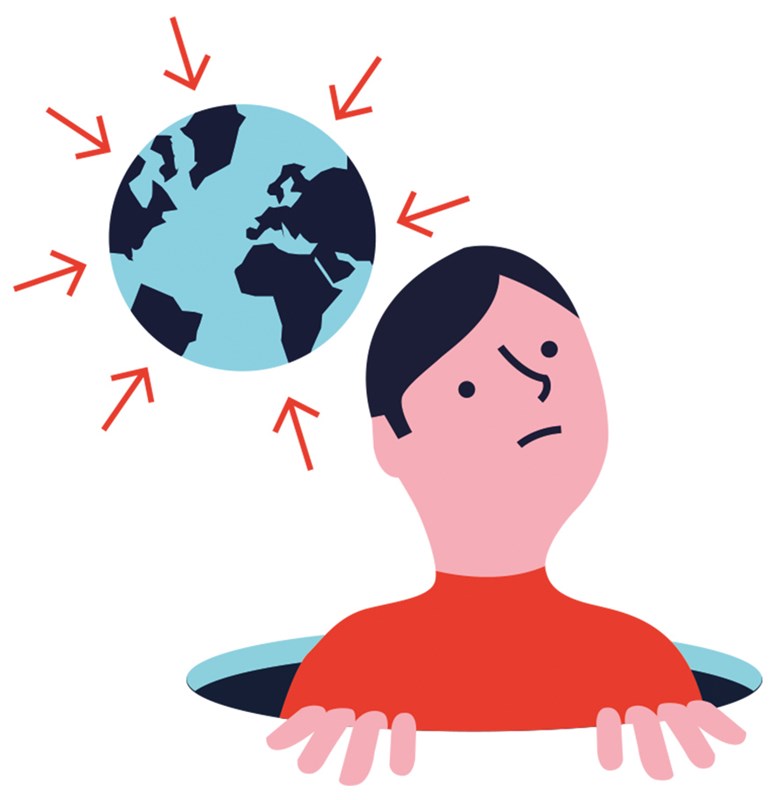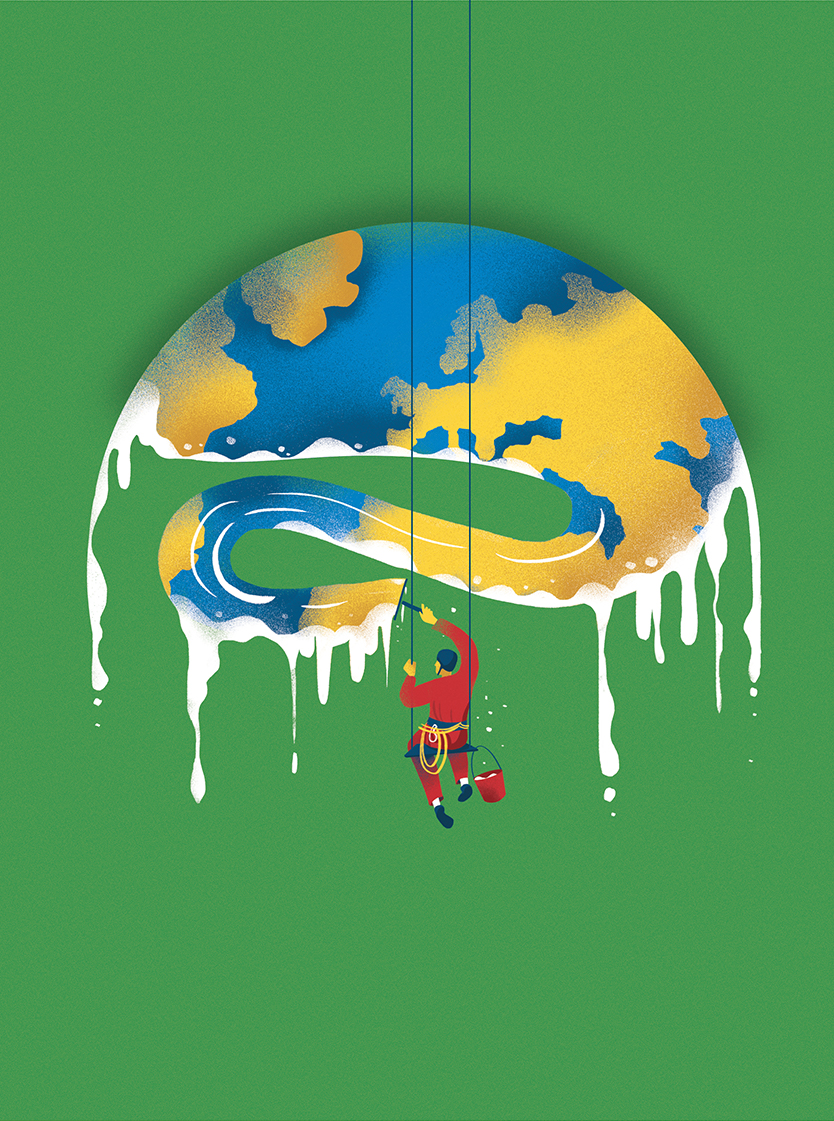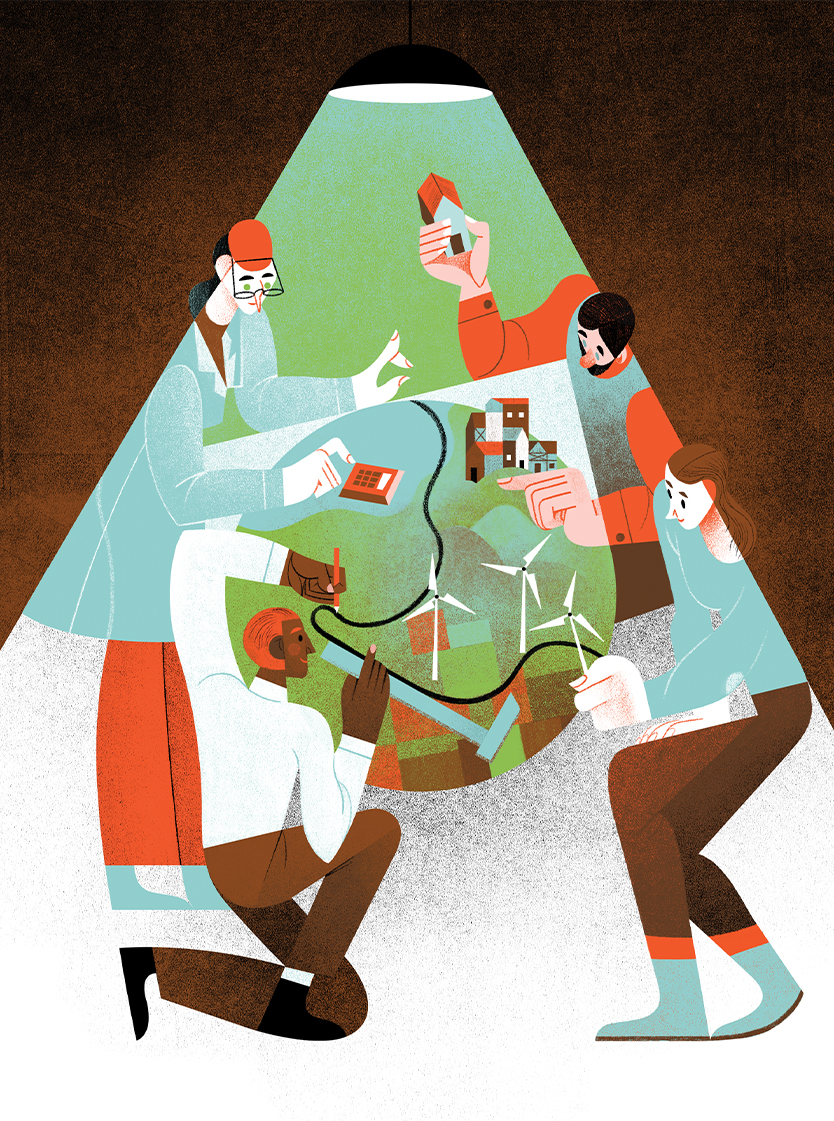Ten years to save the planet
By Keith Scholey

Gaetan Heuze

We have a single decade to bring the world back into natural balance and avoid a disaster for the Earth. Our Planet joint series producer Keith Scholey explains why it is so hard to communicate this critical message, and about his team’s efforts to spread the word about the global environmental crisis as quickly as possible.
I am a director of Silverback Films, a production company that specialises in making films about the natural world for television and the cinema. I have worked in this specialist area for the past 35 years.
During this time, I have travelled to many parts of the planet and the rapid decline of the natural world has been clear to see. In recent years the mounting scientific evidence has confirmed that we are entering a global environmental crisis.
Not only are species declining at an unprecedented rate, but the whole biosphere appears to be losing its stability due to the combination of the loss of biodiversity, climate change, huge surges in nitrogen levels and ocean acidification caused by higher levels of CO2 being absorbed by the oceans. However, actions to contain this crisis have been few and far between, and largely ineffective. Is this because people like me have failed to communicate the scale and the seriousness of the problem?
The current environmental crisis should not come as a great surprise. There have been warnings about the ‘sixth extinction’ of species for decades, and climate change has been a recognised international issue since the Kyoto climate agreement more than 20 years ago. But little has changed. Far from it, the causes have accelerated and the global trajectory towards catastrophe remains firmly on course. Why does the world not see this huge danger to our future? One answer, I believe, lies in the fact that communicating this crisis is very difficult.
“we have just a single decade”
Keith Scholey

Firstly, humans are short term planners. We have ‘five-year plans’ and often five-year governments. The natural world operates on time scales of tens of thousands, if not hundreds of thousands, of years. We notice the short-term catastrophes, like typhoons, earthquakes and wars but this global environmental disaster is slow and insidious. The build-up of carbon dioxide in the atmosphere is invisible, and the effect of the changes it brings on our time scales are difficult to perceive. Even deforestation, overfishing or the loss of our great wildernesses, although alarmingly fast in terms of the natural world, are slow enough not to make a news story. Our media likes sharp headlines, and a creeping apocalypse will rarely make the front page.
Secondly, the environmental crisis is just very depressing. It seems to be caused by a vast and complex collection of reasons that people find overwhelming. Often, there seems to be no clear or quick solution, and we humans like quick and clear solutions. So the stories people like me try to tell, to head off the decline of the world, are usually depressing and certainly not entertaining. It is interesting to reflect that although the ‘disaster movie’ is a very successful Hollywood genre, there has never been a disaster movie about the actual disaster currently facing humanity.
So, how do we let the world know that we are all in a crisis and, if we are to escape it, how do we bring about rapid action? Most scientists now agree that we have just a single decade to make massive changes to the way we produce and consume energy and provide our food, and so bring our relationship with the natural world back into balance. Without these changes, our planet is in danger of runaway instability and an unstoppable crisis. Recently, Silverback Films made a series for Netflix called Our Planet which was accompanied by a large multimedia resource with the World Wildlife Fund (WWF), ourplanet.com. The Our Planet project was conceived to try to stimulate the rapid change needed and, during the making of the series, we learnt a number of things.
“Our media likes sharp headlines, and a creeping apocalypse will rarely make the front page”
Keith Scholey

Firstly, we believed that inspiring audiences with the wonders of the natural world was still important to build its ‘value’. However, we did not hold back on the hard facts about the bad news. Historically, many wildlife films have shied away from the ‘dark side’ of what is happening to nature because broadcasters are fearful of losing their audience. With Our Planet, the audience was shocked by some of what they saw, but seemed to welcome the honesty. The balance appears to have helped to stimulate change and certainly did not drive away the audience. Some 120 million people around the globe watched the series in the first month of its release on Netflix.
Secondly, we limited the problem issues to just the big ones, so as not to confuse the audience with complexity and too many issues. I remember asking the World Wildlife Fund Chief Scientist, Mike Barrett, if he could pick three issues for us to focus on to save the planet. He paused and then said that there were just two: carbon and food. On this basis, we decided to concentrate each programme in Our Planet on just one big problem affecting the habitat that each episode investigated.

The solution needed for that problem was then further explored on ourplanet.com. Once you break the environmental crisis down into the main issues, it seems manageable, and a positive story emerges about how we can fix it. So, far from being depressing, the outcome is empowering. Finally, are we communicating to the right people? By and large, governments react to the anxieties and wishes of their people, so mass communication to mass audiences remains vital. So, with Our Planet, we partnered with Netflix to reach the large global audience, and through ourplanet.com with WWF we could reach beyond Netflix subscribers. All told, we believe that in the six months from the launch of the series in April 2019, the project has been accessed on all media some 60 billion times.
However, I believe targeting leaders is equally important, and not just political ones. Business leaders are often more in tune with the needs of their customers and can bring about change far more quickly. So, to achieve this we presented the project alongside our narrator Sir David Attenborough at the World Economic Forum in Davos, the International Monetary Fund (IMF) and the World Bank in 2019. This is also why we believe Expo 2020 Dubai is so important as, here too, we can reach a huge and influential audience to tell the story that just may help to stimulate the changes our planet rapidly needs to avert the environmental crisis.








